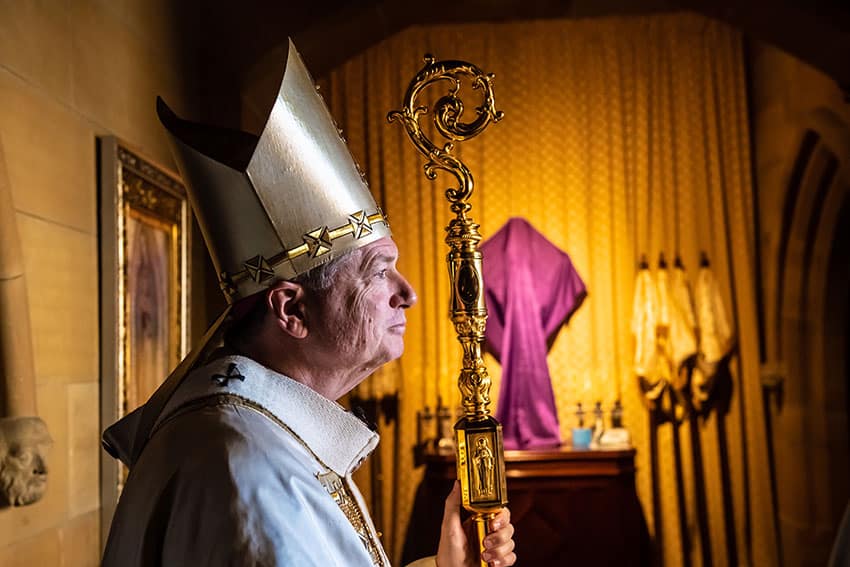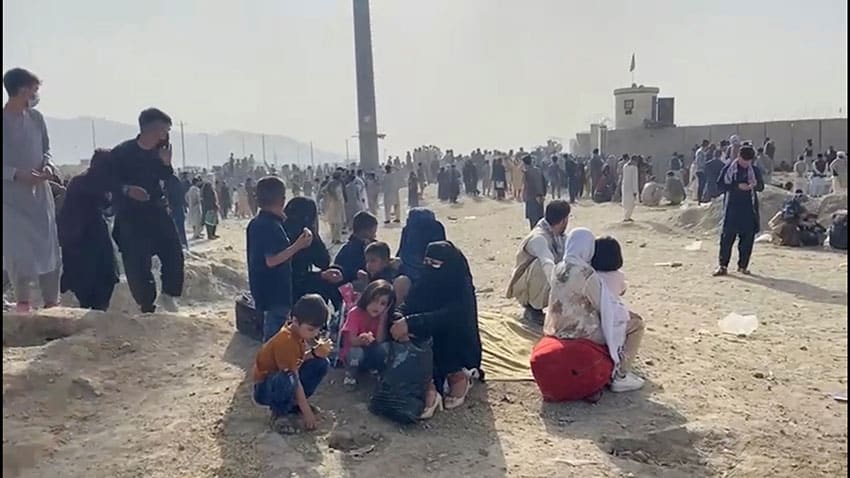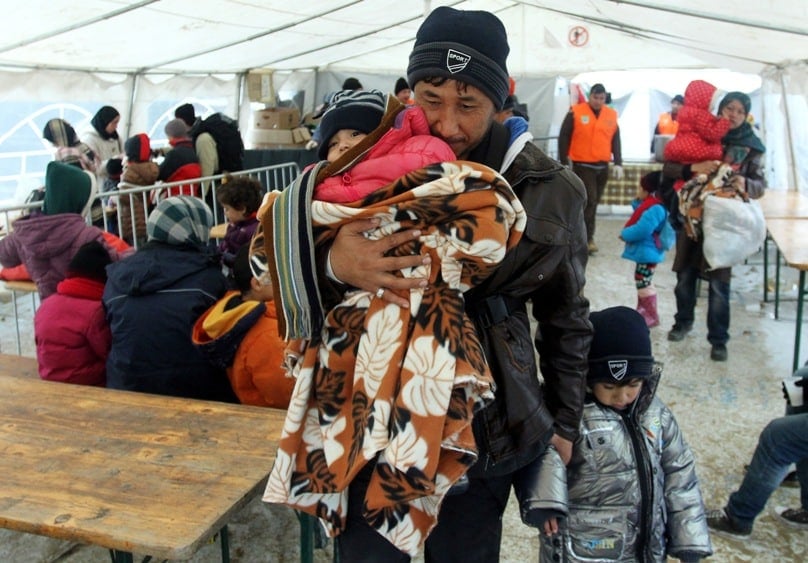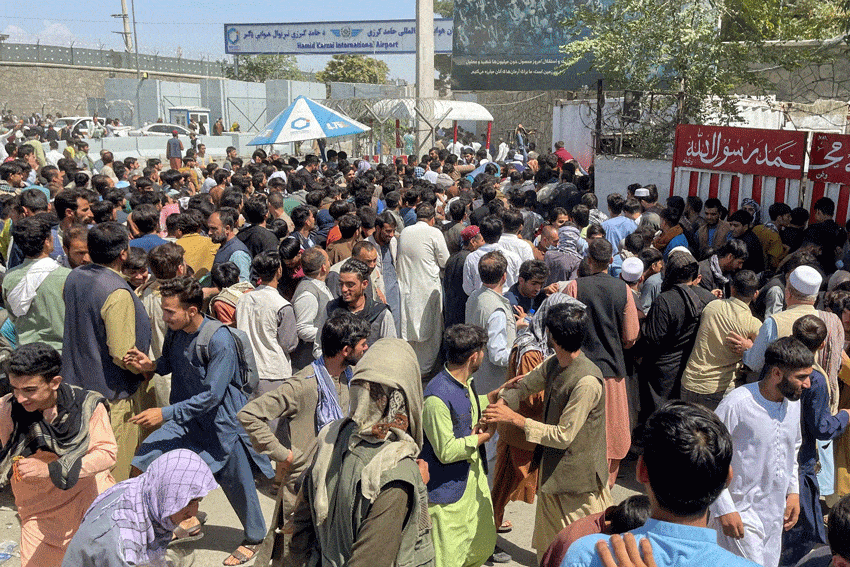
Archbishop Anthony Fisher OP has urged Catholics to get behind a special appeal for Afghan refugees.
The Archbishop’s Afghan Refugee Appeal will raise desperately needed funds and commit Archdiocesan agencies and partners to providing pastoral, educational, health and welfare assistance to Afghan families and individuals fleeing their homeland.
Archbishop Fisher has also personally contacted Australia’s Minister for Immigration, Alex Hawke, asking that the government be generous in its intake of Afghan refugees.
Thousands have fled Kabul and Afghanistan since the following the Taliban takeover of Kabul, completing its control of the country.
Last Tuesday Prime Minister Scott Morrison rejected calls to substantially increase the Federal Government’s allocation of 3000 places this year to Afghans fleeing the crisis, but indicated that it would increase its humanitarian program to accommodate additional persons if needed.
“With the fear of persecution and other atrocities ever-present in Afghanistan, these people deserve the opportunity to permanently rebuild their lives here.”
That call came from religious leaders, including a number of Australia’s Catholic bishops, as well as charities, aid agencies and community networks, who said the country is well-placed to take 20,000 Afghan refugees and should do so.
As a precedent Australia accepted a one-off increase of refugees in 2015, taking 12,000 people who fled conflict in Syria and Iraq.
Mr Morrison told media that Australia had already evacuated four times the number of people from Kabul in its rescue mission than was initially expected and that he thought this year “I actually think it will be more” than the allocated 3000.
He said Australian defence forces had evacuated “some 4100 people” including more than 3200 Australians and Afghan nationals with Australian visas just before attacks near Kabul airport killed more than 100 people on 27 August.
Meanwhile, local refugee advocates are also concerned for the more than 5,100 Afghans already living in uncertainty in Australia.

Many of them have been assessed as refugees but cannot return to their homeland.
“These people have made significant commitments to Australia for years, through working, studying and volunteering in our communities,” said Jesuit Social Services CEO Julie Edwards.
“With the fear of persecution and other atrocities ever-present in Afghanistan, these people deserve the opportunity to permanently rebuild their lives here.
“The guarantee of permanent visas for Afghans already in the country under temporary protection or those who are having their status currently processed is the right thing to do.”
Jesuit Refugee Service Australia also urged the Federal Government to grant current refugees permanent protection and swift access to family reunification, and supported calls to provide at least 20,000 new humanitarian places for people fleeing Afghanistan.
“This appeal will not only raise needed funds but also give those who need it access to healthcare, education and welfare support as they make their home among us.”
Tamara Domicelj, JRS Australia Country Director, said that there are also more than 5,000 Afghan refugees and people seeking asylum in Australia today.
“In the current circumstances, it is clear that they will not be able to return to Afghanistan in the foreseeable future,” she said.
“It is time to allow them to remain in Australia permanently so that they can rebuild their lives here in earnest and be reunited with family members at the very earliest opportunity. It is urgent now, and morally incumbent upon us, to ease the suffering of those who have lived amongst us and contributed to our society in so many ways, including, in our experience, by volunteering on the frontlines of our COVID19 response.”
Reza, a refugee from Afghanistan living in Sydney, told The Catholic Weekly that Afghan refugees on temporary visas have already suffered “long and painful” separation from loved ones they are now desperately anxious about.
“Without the ability to reunite with family, many have been apart for over eight years, and have struggled to deal with the uncertainty and pain of what is unfolding for their relatives in Afghanistan,” he said.
“As mothers, fathers, and siblings, all we want to do is provide care, emotional support, and protection to their loved ones.
“Now is the time for the Australian Government to provide certainty and permanence to Afghan refugees on temporary visas so that we can be reunited with their family members and live together in peace.”
Numerous governments and aid agencies around the world have expressed deep concern at the consequences for the thousands of Afghans who worked alongside and for US-led allied forces throughout over the last two decades.

Twenty years ago, Australia was one of the first nations to join the US-led intervention in Afghanistan to remove the Taliban, making promises to protect and promote democratic freedoms, human rights, the rule of law, the rights of women, and minority groups.
Australia’s commitment contributed to an education for millions of Afghan girls, women being able to work, a vibrant and free press, and improved protection for minority groups.
As the Taliban tightens its grip on the nation, these achievements are being laid to waste in plain view of the world.
Archbishop Fisher expressed gratitude to the Morrison government for describing its initial commitment “to take 3000 friends and allies from Taliban-controlled Afghanistan as a floor and not a ceiling”.
“We pray that all those who need to flee to safety do make it out of the country before all avenues are closed and do find a safe haven,” the archbishop added.
“Now is the time for the Australian Government to provide certainty and permanence to Afghan refugees on temporary visas …”
“Those lucky enough to make it to Australia seeking protection will need all the support that we can give.”
Fr Peter Smith, Promoter of Peace and Justice for the Sydney Archdiocese, said the world had watched the situation in Kabul and Afghanistan collapse into chaos in recent weeks. “And all of us have had the same thought, ‘what can I do to help?’
“This appeal will not only raise needed funds but also give those who need it access to healthcare, education and welfare support as they make their home among us,” he said.
“I have been inundated by requests from people across our community to do something to help. This is that something right now. The Justice and Peace Office will work to ensure the money gets to those who need it as quickly and directly as possible,” concluded Fr Peter Smith.
The UN and aid agencies are preparing for a Syria-scale refugee crisis. The appeal means that those who find their way to Australia will have support and resources waiting for them.

These dark times remind all of us that we really are our brother and our sisters’ keeper.
In a 19 August letter to Mr Morrison, President of the Australian Catholic Bishop’s Conference Archbishop Mark Coleridge said there had been “an outpouring of concern for the people of Afghanistan”.
He said the 3000 places offered “is a substantial commitment, but more is needed”.
Based on estimates from key humanitarian organisations and pledges from other countries, Archbishop Coleridge proposed that at least another 17,000 places be made available.
“… The Justice and Peace Office will work to ensure the money gets to those who need it as quickly and directly as possible.”
“Australia has stepped up before in response to significant humanitarian crises, and I urge your government to be generous,” he wrote, adding that Catholic agencies “stand ready to assist your government with resettlement of refugees as an expression of our great concern for the people of Afghanistan”.
The bishops’ call was supported by agencies such as Jesuit Social Services, the Jesuit Refugee Service and Caritas Australia as well as community networks such as the Afghan Australian Advocacy Network.
JRS also urged Australians to contact their local MPs, calling on them to ensure immediate government action to increase refugee intakes.
Donations to the Sydney archdiocesan appeal can be made online at www.ourfaithourworks.org
